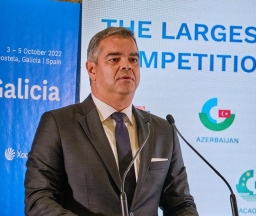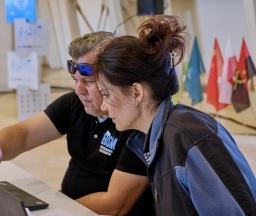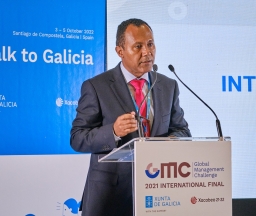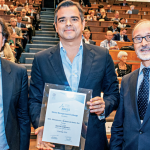
Her experience in the competition in 2015 motivated the Kenyan Wacu Mureithi to invest in a business of her own.
Wacu Mureithi participated in the 2015 Global Management Challenge in Kenya. From this experience, the great lesson she learned was that he had the ability to move from the virtual to the real world by managing her own business.
At the age of 31, Wacu Mureithi has an MBA and three years ago founded Mosara (K) Limited, a business that designs personal care products made with natural ingredients from the African continent. “We are still a small business, but we are growing. At the moment we have five products on the market that have been well received and we have only worked on hair products”, says the entrepreneur.
The idea of creating Mosara came to her after a period of unemployment in which, to cut expenses, she began creating personal care products for herself, which later became a success with family and friends. And it was her sister who challenged her to make it into a business. “Mosara was created after taking part in the competition and the biggest lesson I learned from this initiative was that I was able to run a business”, says Wacu Mureithi. When she joined the competition in 2015, it was first time it had been held in Kenya. “I had finished my MBA and was looking for opportunities to practice what I had learned. My employer at the time asked me to represent the company in this event”, she recalls.
Her team got through the first and second rounds and made it to the national final, where they came in third place. “I ended up playing alone in the final because my teammates were not available on that day, and I had enough confidence to run the company by myself. The simulation involved production, purchase of raw material, allocation of resources to various departments and for me the most stimulating part was to establish the price of the final product“, stressed Wacu Mureithi.
One of the things that this entrepreneur learned in this challenge, and which she applies daily, is the importance of planning. “Before the competition, I had never created a budget or analysed the performance of the previous quarter before making new plans for the next quarter”, she added. But, she says, “it is definitely easier to run a virtual business than a real one”. Among the many differences, in real life there is always something going on, there are emails and calls to respond to, even after hours, and you have to balance work and family.
But the biggest difference is that “in a simulation there are no repercussions from a bad decision but in real life we have to bear the consequences.”






